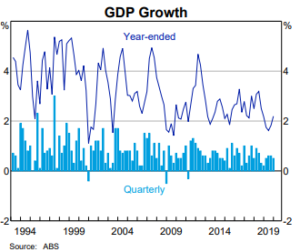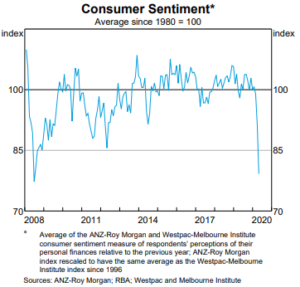What Is Economics?
While economics can appear daunting, odds are you think in economic terms all the time. You probably just don’t notice it.
For example, say you’re thinking about returning to study. However, you know this means you’ll need to reduce your working hours and therefore start earning less income. You may think it’s not worth it and that you’d instead prefer to spend time with family.
Economics is essentially the study of decision-making. It’s all about trade-offs. In other words, economics has everything to do with how we choose to allocate our scarce resources to satisfy our wants and needs.
Governments and businesses use economic thinking every day, whether it’s governments deciding how to spend our tax dollars or businesses trying to understand customer behaviour.
In this resource, we explore macroeconomics vs. microeconomics, who uses macroeconomics and how economics affects you.
Macroeconomics vs Microeconomics
Macroeconomics just means the economy as a whole. Microeconomics focuses on certain pockets of the economy—for example, individuals, governments and companies.
When macroeconomic changes occur, there will be varying changes on a microeconomic level depending on the pocket of the economy.
In macroeconomics, key measures include the rate of unemployment, inflation and gross domestic product (GDP).
Read: What Is Inflation?
Let’s say the Australian Government announced that Australia’s unemployment rate had climbed over the past 12 months. From a macroeconomic standpoint, this increase in the unemployment rate would hurt Australia’s GDP.
GDP values the finished goods and services produced by a country over a specified period. Below is Australia’s GDP over the past 25 years. Economic growth is the increase in the production of goods and services for a country, from one period to the next.

From a microeconomic standpoint, how’d a higher unemployment rate affect individual households? Would it make them less confident about buying luxury goods like jewellery? Which industries would hurt the most when the unemployment rate rises? These are typical questions that’d be asked at a microeconomic level.
The world endured a pandemic in 2020, crushing the global economy. In all countries, unemployment rates soared and economic growth fell. The below image shows consumer confidence fell sharply, implying that households were spending more cautiously.

Who Uses Macroeconomics?
Governments are one of the biggest users of macroeconomics, using macroeconomic data to forecast and analyse. Governments’ reliance on macroeconomics stems from the fact that it can significantly shape policy decisions.
When making decisions, governments consider the three pillars of macroeconomic policy: fiscal policy, monetary policy and exchange rate policy. Governments need to think about these broader issues so they can more deeply consider the economic impact of potential policy decisions.
Read: What is Fiscal Policy?
Continuing with the above example, if Australia’s unemployment rate rose, this would hurt GDP and result in less household spending—all else being equal. Further, the Australian Government’s income tax revenue would fall.
Why Is Macroeconomics Important?
Economics can be a scary topic, so you can be forgiven for being unsure on the impact of economic events. Macroeconomics helps simplify everything. It equips you with a mental framework to use, letting you step back and follow the logical process of X affects Y → Y affects Z, and so on.
Being able to extract valuable insights from macroeconomic data can help government policy-makers make more economically sound decisions. Assessing macroeconomic data can make policy-makers consider implications they may otherwise not have.
Virtually no government policy is decided upon without at least some consideration of macroeconomic stats and forecasts.
Remember, companies are also directly impacted by macroeconomics. To further explain the macroeconomic chain of thought, consider that a prospering company will be: generating new business. earning more income and hiring more staff.
These newly employed people as well as the company will be paying more tax to the government. The government can use this money to spend on programs, initiatives and projects with the aim of creating even more businesses and jobs.
How Does Economics Impact Me?
Economics is a concept you can move through by following a logical sequence. You can apply this sequence to anyone or anything—be it a government, company or even yourself.
Consider the following examples of macroeconomic scenarios:
- GDP growth is sluggish.
- The unemployment rate is rising.
- The inflation rate is slowing.
To see how situations like the above might affect you, you may ask yourself questions like “is my job at risk?” or “do I need to cut my spending?”
Sticking with the same example of a weakening macroeconomic landscape, you may notice a lot more luxury good sellers running a lot more sale promotions in an effort to encourage people to spend.
Hopefully, you can now see how economics encapsulates both macroeconomics and microeconomics.
Remember, macroeconomics is all about the big-ticket items you see covered in the business news like unemployment, GDP and inflation. Changes to macroeconomic measures filter through at a microeconomic level, affecting individuals in different ways based on personal circumstances.